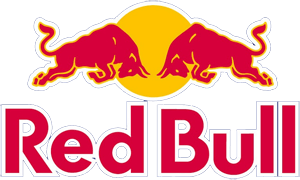Random Training Thoughts #3
Date: 28th September 2009
I’ve been training at one sport or another now for 25+ years. I first started thinking of physical activity as “training” during high-school sports; but the focus was always more on “practice” than on “training.” I think this is an important distinction. We “train” for things like running, lifting weights, etc. etc. We “practice” yoga, archery, medicine, many martial arts and so on.
There’s an old adage that to get good at something you have to practice, practice, practice, and practice some more. In Malcolm Gladwell’s “Outliers” book he figures that about 10,000 hours of practice will produce mastery in any given field of endeavor. It doesn’t matter how strong you are, if you haven’t done the practice then you won’t be any good at something.
Taking this idea farther, most sports may fall on a spectrum defined by straight skill on one one side and pure power on the other end of the spectrum. Target shooting might be the ultimate “skill” sport, olympic lifting the ultimate power sport (although skill obviously is required in even the most power-based sports–in fact, it looks to me that skill often wins out over straight power even at the olympic power lifting events). But, as a way to think of sports, I could put “skill” on the far left of the spectrum and “power” on the far right. Most outdoor sports lean heavily toward the “skill” side of the spectrum. Being a linebacker also takes serious skill, but do you damn well better have some power and mass to back that skill up. Far right of the spectrum.
The strength requirements of “skill” sports also become increasingly specific. For example, a climber needs to have tremendous specific hand strength (the ability to apply strength to a hold in any of the three common grips and their sub-grips), something that just having tremendous general hand strength won’t provide (nordic skiers used to win the hand strength tests, not sure if that’s true anymore). Without very specific and sufficient forearm (“finger”) strength every bit of strength training is close to completely wasted. If you can do 50 pullups but not hang on a half-inch edge for 30 seconds then you’re the equivalent of a car producing 500hp but spinning bicycle tires–there’s no way to apply that power, not enough friction with the road. This is why so many gym-based exercise routines are completely useless for climbing. 99 percent of the time I–or almost anyone I’ve ever witnessed climb–fall off it’s because I can’t hang on.
So, for sports requiring very specific skills or far to the left on the skill vs. power requirements more time should be be spent practicing the sport than training for it.
There’s another axis to the spectrum as well; the variable nature of the apparatus. If you’re a target shooter then things stay relatively familiar. If you’re an olympic lifter or gymnast you pretty much know what you’re going to be dealing with when you walk out the door to compete or train. But if you’re a climber or a skier then the the apparatus is going to be wildly different, and will require a much larger set of ingrained skills.
So now the spectrum looks more like a piece of graph paper with “skill” and “power” defining the X axis, and “familiar” and “unknown” defining the Y axis. I would argue that the time spent “training” will be highest in the low-variability, high-power sports, with the time spent “practicing” proportionately greater in the high-variability, specific power sports.
OK, there are a bunch of holes in the above, but I’m doing a lot of thinking on the subject as I go through another round of Crossfit action. Crossfit is training, but it also has elements of practice (the gymnastic moves, olympic lifts), etc. Yesterday I did my workout in yet another strange gym, and was so stoked to make a complete retard out of myself in public yet again. Nothing like hucking a lung while lifting exactly one bar in a room absolutely full of fancy machines and nice people nicely using the machines.
In my next post I’m going take aim at various common “training” strategies… Let’s just say that I will never do another set of bicep curls again.
Posted in: Blog
Comments
Add a comment
I'm more than happy to hear your thoughts on what I've written. Please note that all comments will be moderated before publishing. Thank you for joining the conversation.



